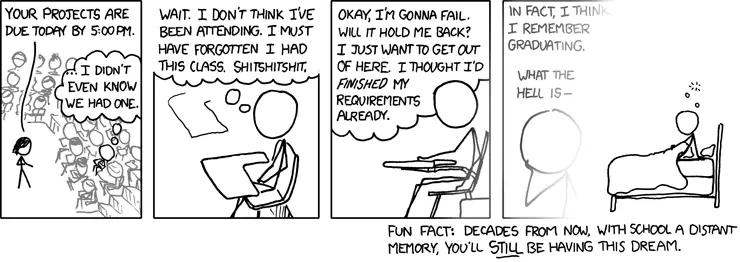As a graduate student, how do you manage your time? Here are five tested time management tips for students from someone who has been there. Read on to find out.
Once you decide to get yourself ahead by enrolling in the graduate school, you are bound to meet the time management challenge. It is a must that you use the best time management approach you can lay your hands on.
Time management is a very crucial consideration because you cannot hope to carry out everything considering many things demand your time. These things include your work, home life, leisure, social life, love life, hobby, spiritual life, and many other things you committed yourself into.
Many of those who enroll in the graduate school are already professionals and are working. You may be one of them.
As a graduate student, how will you survive all those demands on your time and reach your goal? Chances are, you badly need tested time management tips for graduate students like you.
Based on my experience, here are time management strategies for students that enabled me to finish the two levels of advanced education, master and doctoral levels, within a reasonable period.
Five Tested Time Management Tips for Students
1. Prioritize by saying No
You always see this suggestion in any time management book out there. What is prioritization for the graduate student?

This means that once you enroll in an advanced degree of your choice, devote enough time to it. This will entail changing your daily routine.
Two decades ago, on any day, fellow workers would invite me for a drink after work (and I did many times) but I reflected that all this merrymaking and gossiping amount to nothing.
At one point, I just have to decline the invitation and tread a different path. My answer is a definite, categorical NO, and they respected my decision.
You need to be honest with yourself and others to reach your goal. Practice saying NO to all those activities or demands on your time that do not align with your goals.
2. Divide long-term goals into chunks of manageable time
If you are a working graduate student, there is really no need to stress yourself out by taking too many subjects at the same time. Just enroll in a manageable number of subjects in your curriculum that you can finish within a reasonable time.
I recall I finished my master’s degree within five years. I believe that is a reasonable amount of time because I had a full eight-hour work week and I can spare time for only two subjects a week. I consistently attended those classes and tried hard to comply with the requirements despite the occasional field work that brought me out-of-town.
3. Invest to gain time
There is a limit to what you can do within a day. But you can multiply your effort by hiring others to do work for you.
In gathering related literature to develop the conceptual framework of my dissertation, I sought the help of a group of enterprising students who offered gathering research materials for a fee. Surely it saved me time, especially commuting time, that eats up a lot of unproductive hours. The internet is not yet a reliable source of information.
Now, it is relatively easy to gather a pile of literature useful in building up your conceptual framework through an internet connection.
If you don’t have time even to surf and/or don’t know how to do it effectively as you find yourself in a sea of confusion in the world wide web, ask a competent colleague or service that can do that for you. Just specify which types of literature you would like to have in your collection.
Ask your service provider to focus on factual information. If you want to do the screening yourself, read my earlier post titled 10 Tips on How to Discern Fact from Fiction.
4. Set deadlines
Plan for and specify specific target dates or time periods for the following things you need to do in the graduate school:
- submit assignments,
- read assigned books and articles,
- explore research topics,
- submit research topic for your thesis,
- develop your literature review,
- come up with a conceptual framework,
- review notes for the comprehensive exam,
- schedule the thesis/dissertation defense date,
- revise manuscript (this takes a great deal of time),
- finalize the manuscript (almost there), and
- submit the final manuscript.

Always be one step ahead in addressing any of these concerns. It is a good habit to aim to submit your requirements before the target date.
If there are glitches along the way such as a damaged computer hard drive because of a computer virus that wiped out all those well-thought composition of yours, then you have more flexibility. This habit also relieves you of the stress associated with doing work at the last minute, that is — stress. Too much stress kills.
As you will have to do a lot of reading assignments, it pays to have certain guidelines to follow on how to read more effectively. For tips on how to do this, read Five Effective Reading Tips for Graduate Students. If you apply the tips, you’ll finish your reading assignment in no time.
5. Read time management books
I bought and have read a good number of time management books in my effort to manage my time well. Among those books, Bliss’ Getting Things Done [1] stood out and were very useful to me. I like the way he presented his practical tips because he wrote concisely about each tip and offered excellent advice.
With so many references available now, you can get excellent ideas from people who are mindful of their time and accomplishments.
For example, the following video by Ali Abdaal makes so much sense. I got some more ideas to make myself more productive as long as I have the energy to do things.
It’s just a matter of implementing these tips in your personal life. What I just find crucial in doing the tasks at hand is consistent energy to do so. That’s why I prioritize my running activity at a frequency of 3-4 times a week as exercise conditions me. Thus, I avoid getting sick and being hospitalized. Also, I complement vigorous physical activity with the right nutrients to stay in shape.
Final Notes
Ultimately, a very strong motivation to finish a master’s or doctoral degree will propel you to your goal. Finishing graduate school opens new opportunities for personal and professional advancement as well greater opportunities to earn through consultancy services.
Since time is of the essence, start graduate school work as early as you can. You may do so once your finish college, but a good work experience of three to five years in your line of specialization will enable you to discuss topics more meaningfully with fellow graduate students.
I hope these time management tips for graduate students like you will help you meet your career’s goals. Good luck! Keep the fire burning.
Reference
1. Bliss, E. C. (1976). Getting things done. New York: Bantam Books. 198 pp.
© 2013 August 20 P. A. Regoniel, Updated May 6, 2022
[cite]


